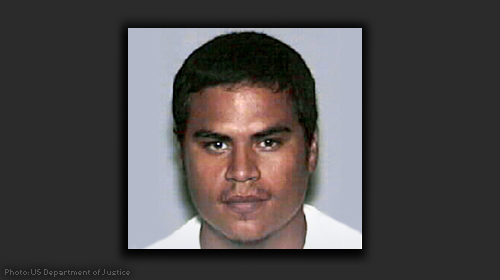A MotherÔÇÖs ÔÇ£Last ChanceÔÇØ at Justice: Jos├® Padilla Torture Case Brought Before Human Rights Tribunal


After a fruitless five-year battle in U.S. federal courts to hold accountable those who unlawfully detained and tortured her son Jos├® Padilla, Estela Lebron today sought to have their claims heard by the Inter-American Commission on Human Rights (IACHR). You can read todayÔÇÖs filing here.
Padilla is the only American citizen to have been seized on U.S. soil, detained as an enemy combatant, kept in incommunicado military detention, and tortured. Until U.S. courts stop using national security arguments to bar Bush-era torture survivors from seeking remedies for abuses, victims, like Padilla and Lebronwill have to resort to international bodies for any chance at redress.
The IACHR is a venue of last resort, an independent human rights body created in 1959 so that people within the Organization of American States, which includes the United States, Canada, and most Latin American countries, could file allegations of human rights abuses that were ignored by the courts in their home countries. Commission rulings are for governments that canÔÇÖt ensure basic rights for their own citizens ÔÇô or worse, actively perpetrate abuses.
For Lebron and her son, the commission may be their last chance at justice.
Relying on intelligence obtained from the torture of other prisoners, President Bush labeled Padilla an ÔÇ£enemy combatantÔÇØ entitled to neither Geneva Convention protections nor to basic constitutional rights. The military detained him from 2002 to 2005 and, to augment their interrogation efforts, blocked all outside contact, including with his mother and lawyers. While imprisoned, government agents subjected Padilla to many of the same interrogation techniques used on detainees at Guant├ínamo Bay: sleep and sensory deprivation, extreme isolation, drastic changes in light and temperature, prolonged and painful ÔÇ£stress positions,ÔÇØ and physical violence.
Padilla and his mother filed two separate civil lawsuits in U.S. federal courts against the officials responsible for his torture and mistreatment. Motivated by a desire for accountability and to prevent similar abuses in the future, they sued for a mere $1 in damages. Citing national security concerns, federal courts ÔÇô including the U.S. Supreme Court in June ÔÇô refused even to consider whether or not the United States violated PadillaÔÇÖs rights.
Padilla isnÔÇÖt the only detainee to be denied redress by the federal courts. To date, not a single individual detained and tortured by U.S. officials since 9/11 ÔÇô on U.S. soil, at Guant├ínamo Bay, at CIA ÔÇ£black sites,ÔÇØ or at the behest of foreign governments around the world ÔÇô has been successful in obtaining a hearing on the merits of their claims. Every case has been dismissed either because government officials were entitled to ÔÇ£ÔÇØ or because litigation would reveal ÔÇ£.ÔÇØ
In PadillaÔÇÖs case, for example, a federal court held open the possibility that the brutal interrogation methods, if used today, would amount to torture, but nonetheless dismissed his claim because they were not ÔÇ£clearly establishedÔÇØ as such at the time. By contrast, since at least the 1980s, the IACHR has recognized such actions as torture.
Aside from the prosecution of 11 soldiers for their involvement in the torture and abuse of detainees at Abu Ghraib, no high-level U.S. official has been held accountable for their role in implementing policies and practices that caused the torture of hundreds if not thousands of individuals in Iraq and Afghanistan. This inaction is baffling in light of the that senior officials solicited information on how to use aggressive techniques, redefined the law to create the appearance of their legality, and authorized their use against detainees.
The U.S. government has argued that publicly airing individual grievances by torture survivors will betray national security secrets and endanger American lives. But the continued refusal to wrestle with the hard truths of Bush-era torture policies comes at a high price. In an era of popular movements in Egypt, Syria, Burma, and elsewhere, the United States cannot afford to lose further its credibility on human rights.
Lebron prays that a ruling by the commission finding that the United States tortured her son will help ensure that no other family ÔÇô citizen or not ÔÇô will suffer the same fate.
LetÔÇÖs hope, for all our sakes, that she is right.
Deborah Francois, Sheng Li, and Alaina Varvaloucas are members of the Lowenstein International Human Rights Clinic at Yale Law School and assisted in filing LebronÔÇÖs petition.
Learn more about Jos├® Padilla: Sign up for breaking news alerts,, and .

